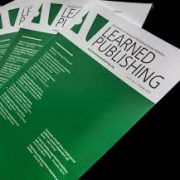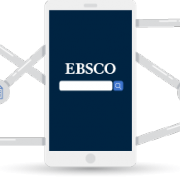Hugo Setzer Urges Publishers to Embrace Accessible Publishing at the NNELS 2020 Summit
The following presentation was delivered by Inclusive Publishing’s Sarah Hilderley on behalf of Hugo Setzer, President of the International Publishers Association, at the NNELS Accessibility Summit 2020. Hugo was not able to attend in person and we were delighted to present his important message.
___________________________________________________________________________________________
Many thanks to the National Network for Equitable Library Service, for your kind invitation to participate at this second Accessible Publishing Summit to present the views of the International Publishers Association on accessible publishing. This is something IPA fully supports and that is also close to my heart.
We are all here because we know something about accessibility within the book industry. We are also here because we are eager to learn more about it; from different perspectives and different experiences. But really, the main reason why we are here is because we believe in accessible publishing. As a publisher and as President of the International Publishers Association, I have committed myself to the cause. At the IPA, the world’s largest federation of publishers’ associations, we are fully convinced that a disability should not be an impediment for anybody around the world to have access to books. This is why we endorse the Marrakesh Treaty as a legal framework to make a responsible transition toward accessibility. This international treaty is an example of proper copyright legislation because of its precision: it allows specific exceptions to make content accessible to more people, without disincentivizing the creation of new content. Furthermore, at IPA we believe that we can strive for full accessibility by working together with the industry’s key stakeholders. This is what motivates me to participate in events such as this one; and, for this same reason, IPA works closely with the Accessible Books Consortium (ABC) of the World Intellectual Property Organization (WIPO) to provide the operative support and resources for a prompt transition to accessibility. I have the privilege of participating on ABC’s Board of Advisors and have been in at least a dozen countries exhorting publishers to commit to accessible publishing by signing the ABC Charter.
With legal and operational frameworks in place and many key institutions working in favour of accessibility, we need to move on from the groundwork and tackle the actual challenge: increasing the number of accessible works for visually impaired people. According to the ABC and the World Blind Union, 256 million people in the world can only access about 10% of published works. That is the whole population of Canada, 7 times! In five years’ time, I hope we will be able to say that we have, at least, doubled that percentage. Now, I believe we can achieve this. We must seize two big opportunities derived from the changes that we have witnessed in recent years and will continue to observe in this new decade.
The first big opportunity has to do with the digital era we all know we are living in. I will not try to explain everything that is going on. It is so fast- paced, I do not think anybody can really explain what a digital world is. Instead, I will limit myself to some facts related to the publishing industry. According to the annual report Global 50: The world ranking of publishing industry, digital markets are soaring for publishers. “For trade publishers, ebooks and more recently audiobooks, account for a combined share of revenue well in the two digits in the big corporate consumer book publishers”. For instance, digital and digital enabled services comprised 62% of Pearson Plc’s annual revenue in 2019. 2 Pearson is the world’s largest publishing group. And it is a similar story for all other sectors of the industry and for publishing houses of smaller sizes. An increasing demand in the digital market of books is relevant for accessible publishing because the tools to publish in accessible formats are digital. EPUB, Daisy and Protected Digital Talking Books (PDTB) have already allowed publishers to create products accessible for VIPs.
But there is still room to grow. I know myself, as an STM publisher specializing in medical books in my day job outside the IPA, that it is not always easy and that certain titles are more suitable for accessible formats than others, but we move on and work on ways to make it possible. I know that the technologies already in place will develop further to make the big leap to full accessibility easier for publishers. So, in a nutshell, digital technologies to create accessible formats are the first big opportunity.
The second big opportunity has to do with the moral importance which is inherent to accessibility. YS Chi, past President of IPA, stated the following back in 2014: “We really believe that publishing in accessible formats is not optional and not just a moral decision. It is a good business decision overall.” I would like to add to that accessible publishing will become a good business opportunity because it is a moral decision. According to an article from McKinsey and Company, “consumers expect brands to take a stand” because their consumption is determined by ethical principles. Any industry has to understand that it has to adapt to the demands of its consumers, and inclusivity will be a big part of adapting to future generations. The book industry has to be inclusive, diverse and accessible. So, those who did not believe in accessibility on principle, now have a utilitarian argument to take the moral high ground. Meanwhile, for us believers of accessible publishing, I could say, we are on the right track.
Thank you very much.





